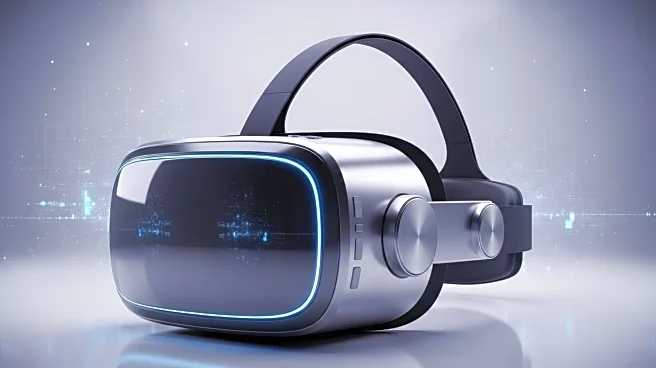What's Happening?
Valve is reportedly preparing to launch its new VR headset, codenamed 'Deckard', by the end of the year. According to XR Institute, the headset is entering mass production with an expected initial release of 400,000 to 600,000 units. This development comes as other major players like Meta and Apple are shifting focus away from VR towards smart glasses. Valve's entry into the VR market is anticipated to emphasize gaming, contrasting with the broader applications pursued by competitors. The headset's price is rumored to be around $1,000, which is higher than Meta's Quest 3 but significantly lower than Apple's Vision Pro.
Why It's Important?
Valve's entry into the VR market with 'Deckard' could reinvigorate interest in VR technology, particularly in gaming. As Meta and Apple pivot towards smart glasses, Valve's focus on gaming could attract VR enthusiasts who have been disappointed by the lack of new VR hardware. The pricing strategy will be crucial, as it positions 'Deckard' between more affordable options like the Quest 3 and premium devices like the Vision Pro. This could impact consumer choices and influence the direction of VR development, potentially leading to more gaming-focused innovations.
What's Next?
The release of 'Deckard' is expected to occur during the holiday season, which could lead to increased competition in the VR market. Valve's focus on gaming may prompt other companies to reconsider their strategies and potentially re-enter the VR space. Consumer reactions and sales figures will likely influence future developments in VR technology, as companies assess the viability of VR versus smart glasses. The success of 'Deckard' could also impact Valve's future hardware projects and its position in the tech industry.
Beyond the Headlines
Valve's decision to focus on gaming with 'Deckard' highlights the ongoing debate about the primary applications of VR technology. While gaming remains a compelling use case, the broader implications of VR in areas like education, training, and social interaction continue to evolve. Valve's approach may encourage other companies to explore niche markets within VR, potentially leading to more specialized devices and applications. The long-term impact on consumer behavior and industry trends will depend on how well 'Deckard' performs in the market.










